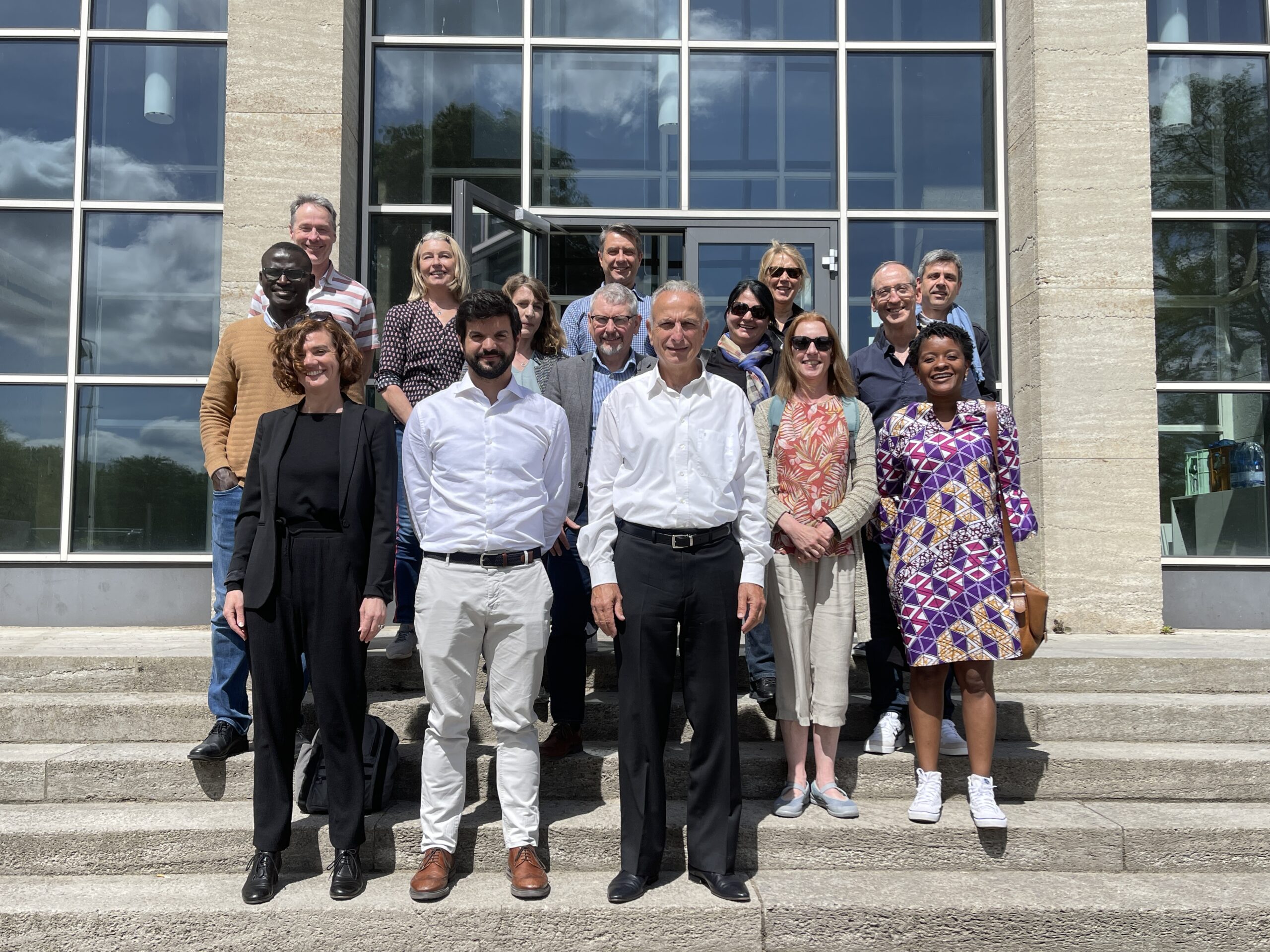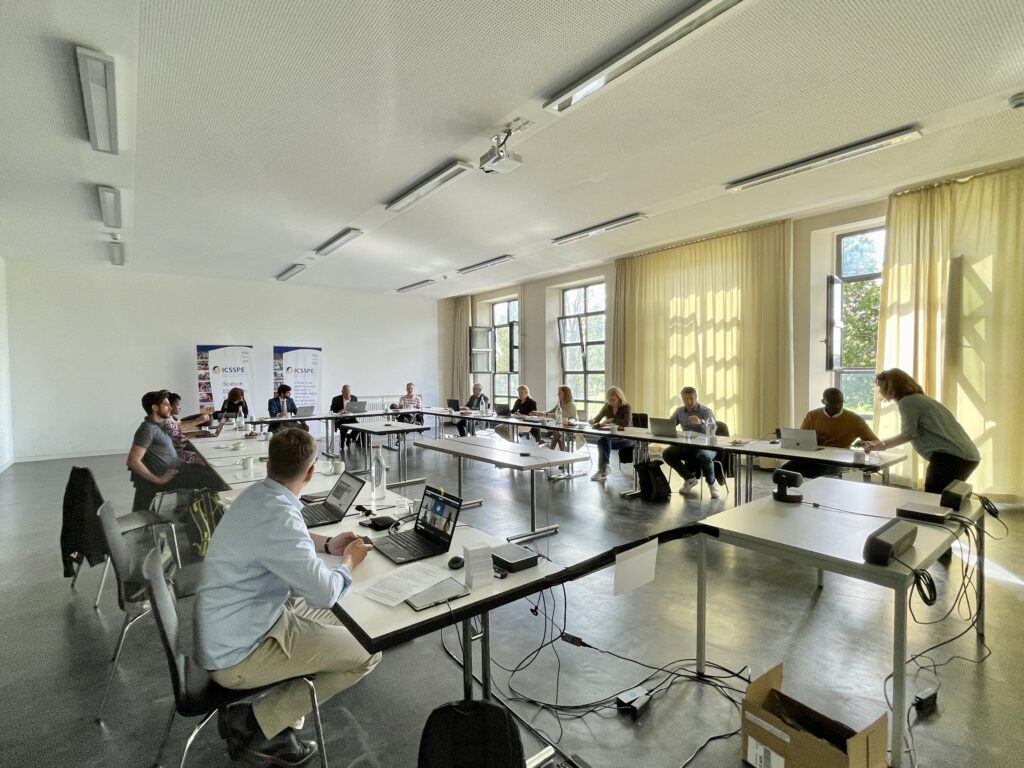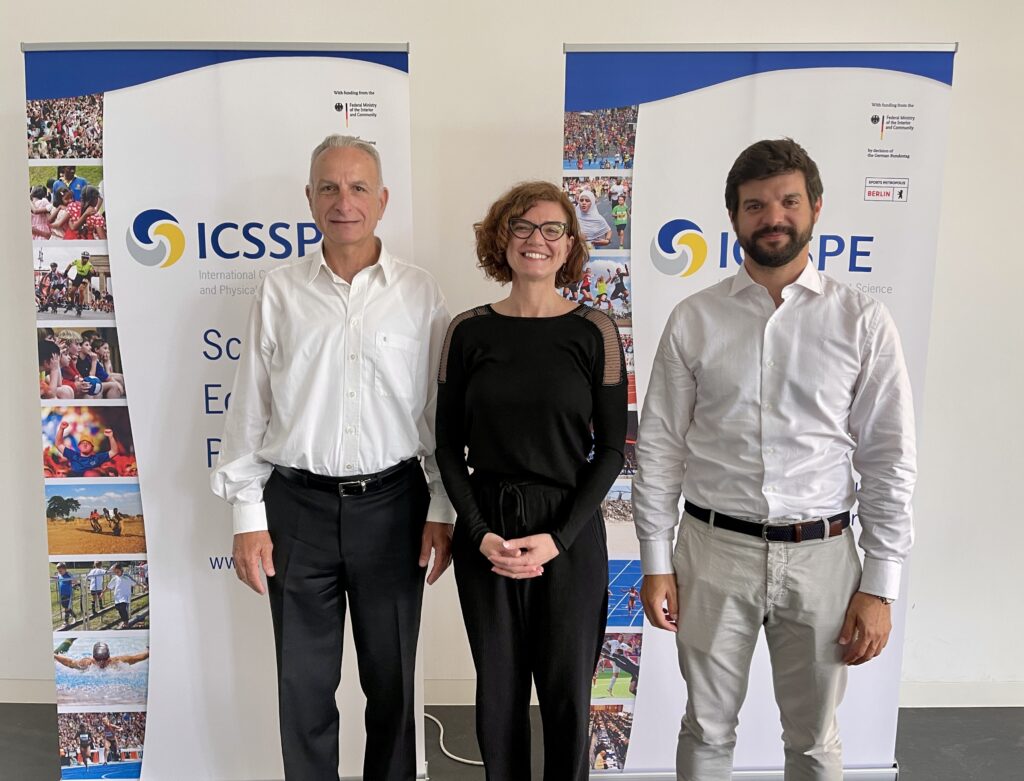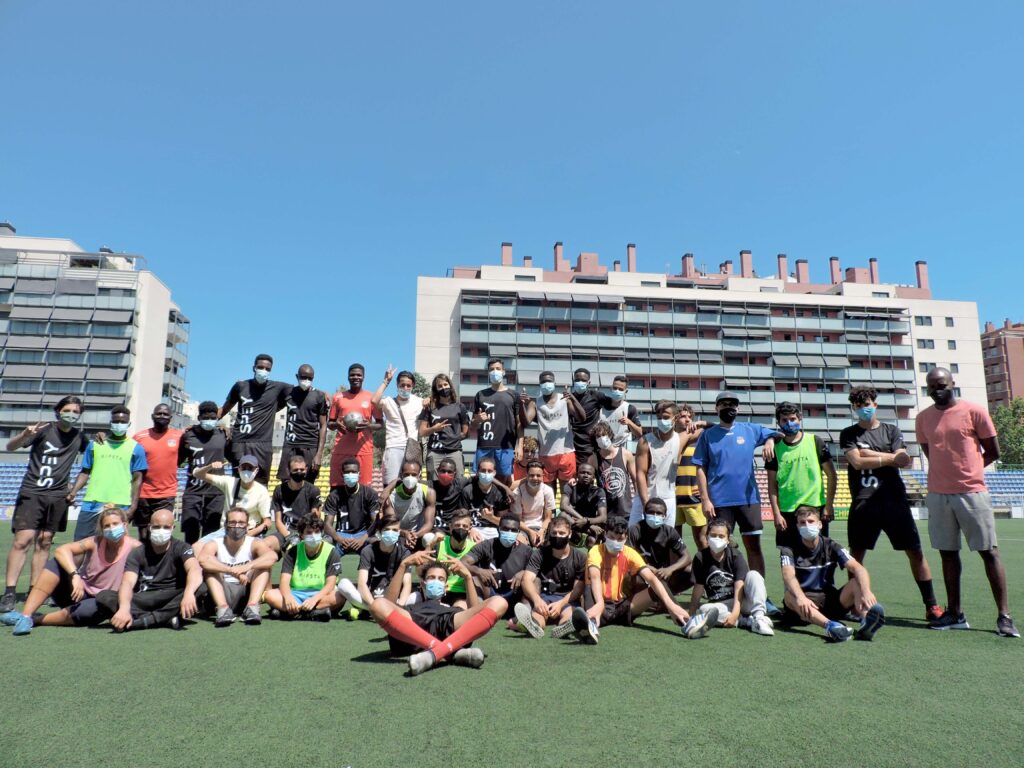
This Thursday, May 12th, the International Council of Sport and Physical Education in Germany (ICSSPE) organized an event in Berlin to present the SPEY project (Sport for the Prevention of Extremism in Youth), where the main conclusions of the program have been detailed and methods to prevent extremism in youth through sport have been explained. In addition, the documentary of the project with the voices of the main protagonists and responsibles was also presented for the first time.
The event began with an institutional welcome by Dr. Uri Schaefer, President of the ICSSPE; and Gerard Esteva, president of the UFEC, the entity that leads the SPEY project. Both have highlighted the strength of the institutions in undertaking social projects and addressing such important issues as the prevention of extremism among youth.

Later, Milena de Murga, psychologist and criminologist, co-creator and coordinator of the SPEY project and director of the Department of Social and International Projects at the UFEC, presented the program and its evolution.
Finally, Roberto Muelas Lobato, a researcher at the International University Center of Marbella, introduced the issues of violence and radicalization and why it is important to address them from a young age, to end up detailing the main conclusions of the SPEY project.

In the end, Marcello Corrado, Head of Projects at the European Executive Agency for Education and Culture (EACEA), presented the Erasmus + program to all attendees. Uri Schaefer and Gerard Esteva closed the event. SNAFU Store, creators of the SPEY work game, also took part in the event.
SPEY, a project to prevent the radicalization of young people
The SPEY Project, led by the UFEC and co-funded by the European Commission, combines the practice of sport and the learning of transversal skills with the aim of minimizing the risk factors involved in the process of radicalization in young people.
Understanding that extremism often uses social exclusion as a catalyst for certain hate speech. SPEY Project also seeks to improve the channels of integration and support network of people at risk of social exclusion while always maintaining a cross-cutting gender perspective. throughout the project.

Led by renowned academics, SPEY Project aims to produce tools which can measure the effectiveness of programs aimed at preventing extremism through sport. The SPEY project has the support of 7 countries and 9 ‘partners’, including the Confederation of Sports of Sweden, the Union of Federations of Latvia, the International Council of Sport and Physical Education of Germany, the City Council of Gondomar of Portugal, the Ministry of Culture and Sport of Greece, the French ‘think tank’ Sport and Citizenship, and the University of Córdoba.